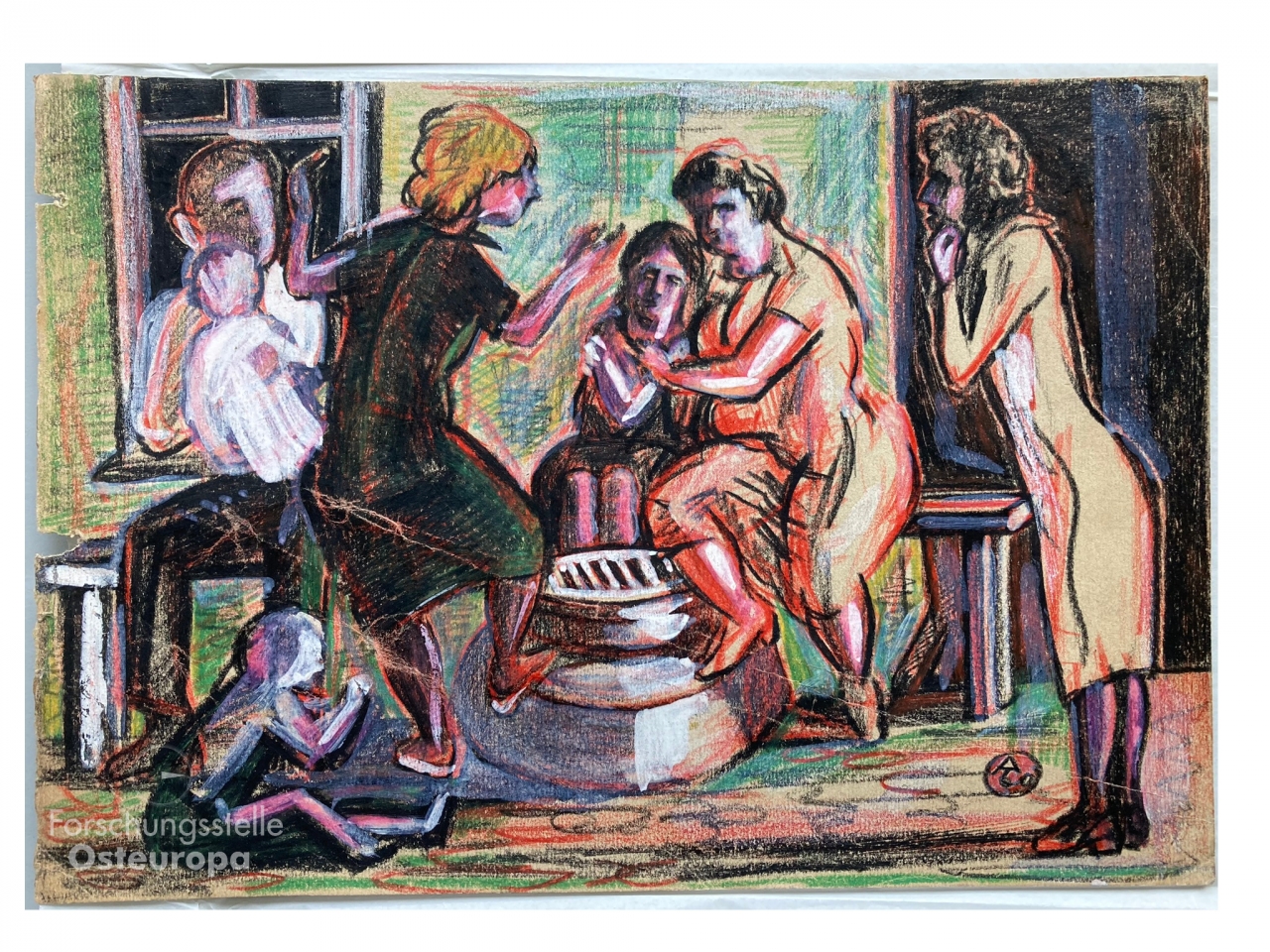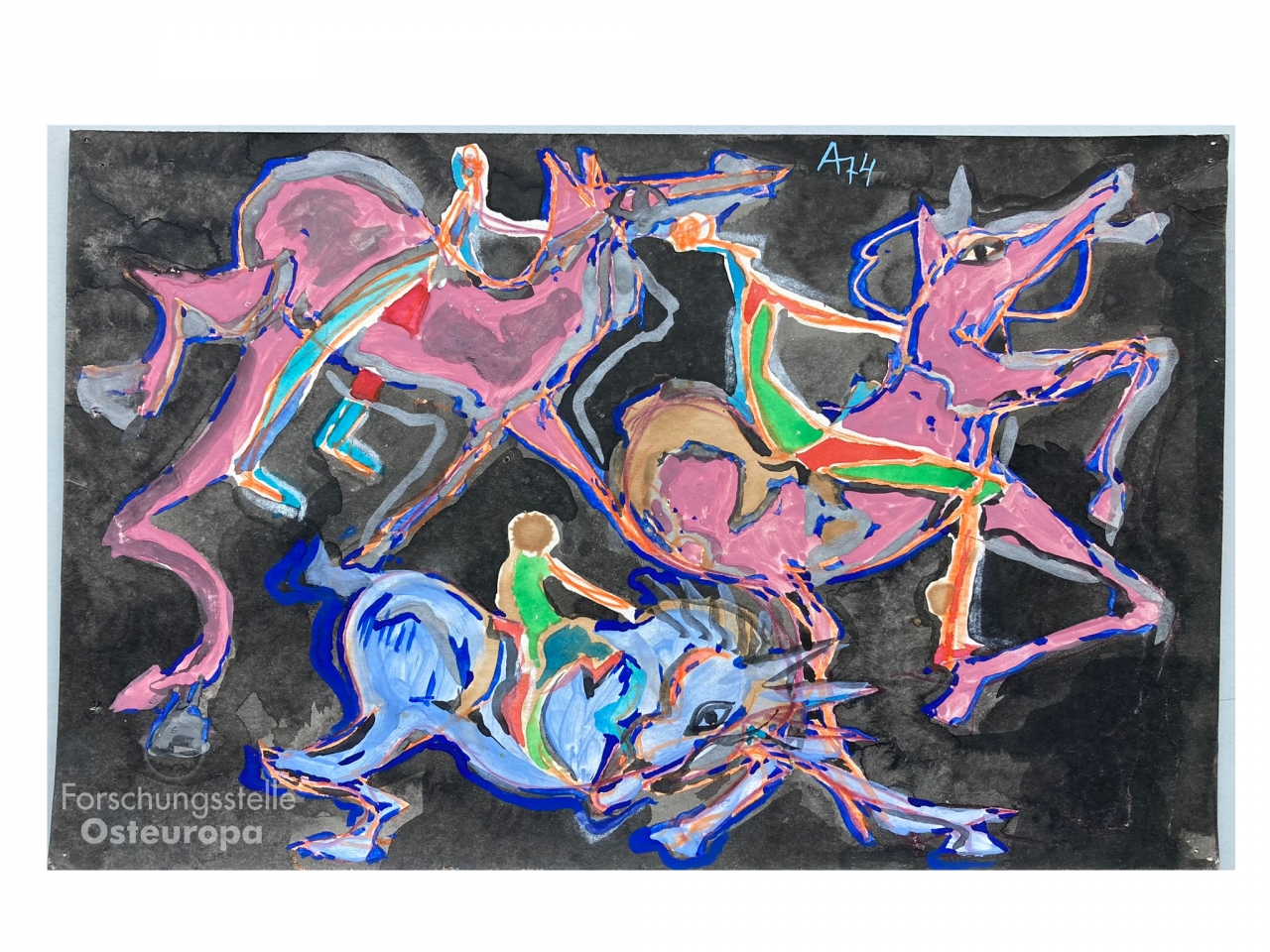20.01.2025 Bewerbungsschluss
03.07.-05.07.2024, Dresden
Lunchtalk #86
12:00 Uhr, OEG 3790 und Zoom
Anna Dial, The ‘Unknown Person’ Publishing House: Community, Art and Activism - Challenges for Independent Publishers in Russia and Exile
Kolloquium
18:15 Uhr, IW3 0330 und Zoom
Elias Angele (Bremen)
Durch den eisigen Vorhang. Wissenschaftleraustausch in der Antarktis, 1956-1983
Buchvorstellung
18:00 Uhr, OEG 3790
"The Making and Unmaking of the Ukrainian Working Class"
mit Dr. Denys Gorbach (Autor) und Prof. Dr. Jeremy Morris (Diskutant)
Filmvorführung
18:00 Uhr, Kino City 46
"Herr Zwilling und Frau Zuckermann" (DE 1999, Regie: Volker Koepp, 126 Minuten, OmU), Einführung: Susanne Schattenberg
Vortrag
19:00 Uhr, Landeszentrale für politische Bildung
NS-Überlebende in der Ukraine heute. Ragna Vogel (Kontakte-Контакты e.V.) und Marcus Meyer (Denkort Bunker Valentin) im Gespräch mit Muriel Nägler
Buchvorstellung/Diskussion
19:00 Uhr, Kukoon
Russia’s War in Ukraine. Ukrainische Wissenschaftler*innen beschreiben den Krieg.
Autorin Tetiana Kostiouchenko im Gespräch mit Eduard Klein
Wissenswertes
Nonconformism all the way
The art of Aleksandr Arefiev and his role in the Leningrad unofficial artistic community.
Aleksandr Arefiev, Untitled, 1960. Archive of the Research Centre for East European Studies. Photo: Georg Sokolov.
December 1974 marked the first officially permitted exhibition of nonconformist artists in an exhibition hall in the Soviet Union. It took place at the Ivan Gaza Palace of Culture in southwest Leningrad and went down in history as the Gaza Exhibition. The exhibition opened on December 22 and attracted an unexpectedly large audience: people queued up all four days the exhibition was open.
Such an event was possible not only because of the "Bulldozer Exhibition" that had taken place three months earlier and paved the way for the legalization of all kinds of nonconformist activities. In addition, by that time Leningrad nonconformist artists had united into a single movement with its leaders and prominent figures. One of the most brilliant was Aleksandr Arefiev (1931-1978). Ten of his works are now in the Research Centre for East European Studies.
Arefiev was a driving force behind the very first unofficial group of artists in the USSR - in the late 1940s (they were all teenagers at the time) he and his friends founded what they ironically called the "Order of Unsaleable Artists". He was expelled from the Artistic High School in 1948 for his interest in Impressionism and never got the chance to finish his studies. In the late 1960s, he became a link between different parts of Leningrad's unofficial artistic milieu, which was by then quite atomized. Arefiev's excellent communication skills and openness proved very useful in bringing together very different artists and artistic groups. Because of his significant influence on the nonconformist artistic movement, Arefiev was forced by the state authorities to leave the country and emigrate to France in 1977. In Paris, only a year after emigrating, he died suddenly in a car accident.

Aleksandr Arefiev, Riders (mirage), 1974. Archive of the Research Centre for East European Studies. Photo: Georg Sokolov.
The artworks came to the FSO archive from the actor Nathan Fedorovsky (1951 - 1994). He immigrated to Germany in 1980 and had a gallery in West Berlin. There he exhibited art and artifacts connected with various prominent figures of the so-called Russian avant-garde, mainly Vladimir Mayakovsky and Lilya Brik. Arefiev, as the only contemporary artist in this context, became an exception.
Looking at the ten works by Arefiev now in the FSO archive, one can see the whole story of the artist's development, with all the significant steps, from small oil paintings of the late 1940s, through scenes from everyday life, to motifs from ancient Greek mythology, to the bizarre, extremely tense and colorful paintings of his late period. Arefiev also spent a great effort studying the language of gesture and the common use of emotionally charged visual tropes in art. His art deals with subjects and themes that are forbidden or silenced in official art, such as war traumas, street crimes, and social tensions. This focus, as well as his highly original artistic language and free use of expressionist artistic devices, reserves Arefiev a special place in the history of 20th century art.
Georg Sokolov
Further reading
Andreeva, Ekaterina: Ugol nesootvetstviia: shkoly nonkonformizma. Moskva — Leningrad, 1946 –1991, Moscow 2012.
Gurevich, Lubov: Arefievsky krug, St. Petersburg 2004.
Bobrinskaia, Ekaterina: Cuzhye? Neofitsial’noe iskusstvo: mify, strategii, kontseptsii, Moscow 2012.
Sokolov, Georg: Postblokadnyj mimesis. O deformacii telesnosti v rabotakh Aleksandra Arefieva, in: Artikult 33 (2019), 60-66.
Georg Sokolov is a PhD candidate and a research associate at Constructor University Bremen. His thesis is dedicated to the emergence of Leningrad nonconformist art from the field of crisscrossing influences of the 1950s.
Länder-Analysen
» Länder-Analysen
» Belarus Analytical Digest
» Caucasus Analytical Digest
» Moldovan Analytical Digest
» Russian Analytical Digest
» Ukrainian Analytical Digest
Online-Dossiers zu
» Russian street art against war
» Dissens in der UdSSR
» Duma-Debatten
» 20 Jahre Putin
» Protest in Russland
» Annexion der Krim
» sowjetischem Truppenabzug aus der DDR
» Mauerfall 1989

